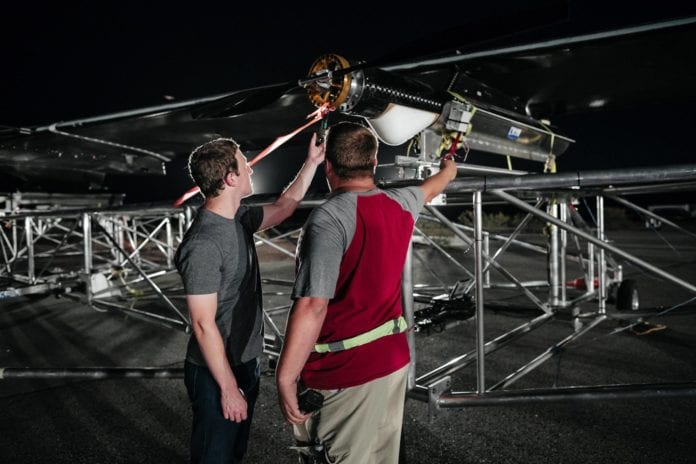Smart manufacturing is a process that uses internet-connected machinery to monitor the overall production process of a factory. The main goal of smart manufacturing is to identify opportunities for automating manufacturing operations and use data analytics to improve the overall performance of the manufacturing process.
The smart factory concept means the industrial or manufacturing processes will be organized in a different way compared to the traditional standards. In the era of intelligent manufacturing, the entire production chain, including suppliers, logistics and product lifecycle management will be connected across corporate boundaries.
Here we go through three smart manufacturing case studies:
Black & Decker
Power tool manufacturer Black & Decker turned to Cisco to provide an internet of things (IoT) solution that increases visibility and decreases complexity in its manufacturing plant in Reynosa, Mexico.
Black & Decker reached out to Cisco for wireless connectivity, and to Aeroscout Industrial for its enterprise visibility solutions. Black & Decker deployed a real-time location system in the form of Wi-Fi radio-frequency identification tags that attach to nearly every material, so that tracking them becomes nearly effortless.
Aeroscout’s Wi-Fi tags integrate with the company’s Programmable Logic Controller, which monitors quality control and delivers its results once the product reaches the end of the line. This allows floor managers visibility at every step of the production process, giving them the ability to slow down or speed up processes, and see how quickly employees are completing their respective tasks.
The plant achieved an estimated 10% greater labor efficiency and better use of labor critical resources, which improved utilization rates from 80% to 90%. It also resulted in quality improvements with first-time pass defects per million opportunities reduced by 16%.
Hirotec
Japanese company Hirotec Group, one of the largest private production companies in the global automotive market, wanted to implement Industry 4.0 innovations to tackle unplanned downtime.
To achieve this, the company paired an IoT platform from Hewlett Packard Enterprise (HPE) partner PTC with HPE Edgeline systems, boosting its operations technology capabilities with predictive analytics.
One of Hirotec’s critical priorities is to ensure continuous operations — and to minimize unplanned downtime in its manufacturing facilities.
With the advent of Industry 4.0 manufacturing models, the company realized that it was key to add predictive analytics in a move to obtain improvements in its manufacturing operations by eliminating unplanned downtime.
Hirotec completed three pilots of the IoT platform. The first captured and analyzed data from eight computer numerical control (CNC) machines in Hirotec’s Detroit plant. In another pilot, Hirotec implemented the platform to perform remote visualization of an automated exhaust system inspection line. Data sources for this pilot included inspection robots, force sensors, laser measurement devices, and cameras. The company is deploying the system to perform real-time visualization and automatic report generation for the entire production line of an automobile door production facility.
Through the pilots, Hirotec gained real-time visibility into its business operations, which allows the company to address issues that impact its efficiency and throughput. The solution also equips Hirotec to utilize machine learning to predict and prevent failures in critical systems like its exhaust system inspection lines.
AW North Carolina
AW North Carolina, Inc. (AWNC), a manufacturer of automatic transmissions and transmission components, is using smart manufacturing technology from Cisco to improve the efficiency of its manufacturing plant.
With more than 2,000 employees, AWNC’s 1.3 million square-foot Durham factory supplies Toyota with more than 600,000 transmissions per year.
Over 3,000 transmissions come out of the firm’s factory per day, which leaves no room for down time. Each unit incorporates 700-800 highly specialized parts and each part has its own rigid standards, AWNC said.
AWNC has deployed a 450-line Cisco Business Edition 6000 unified communications system in its offices. It has installed a Cisco network infrastructure with access points, switches and controllers for secure Wi-Fi coverage to more than a million square feet of factory floor. Additionally, a new FlexPod system provides integrated computing, networking, and storage, AWNC said. FlexPod solutions include Cisco Unified Computing System (Cisco UCS) servers, Cisco Nexus switches, and NetApp unified storage systems. The FlexPod architecture can be optimized for a variety of mixed workloads in both virtualized and non-virtualized environments.
The company highlighted that there has been zero network downtime since the implementation of Cisco’s new technology. The smart manufacturing platform gave AWNC the possibility to embrace cloud computing and implement new enterprise resource planning (ERP) and manufacturing execution systems (MES) to automate and analyze data and processes.

